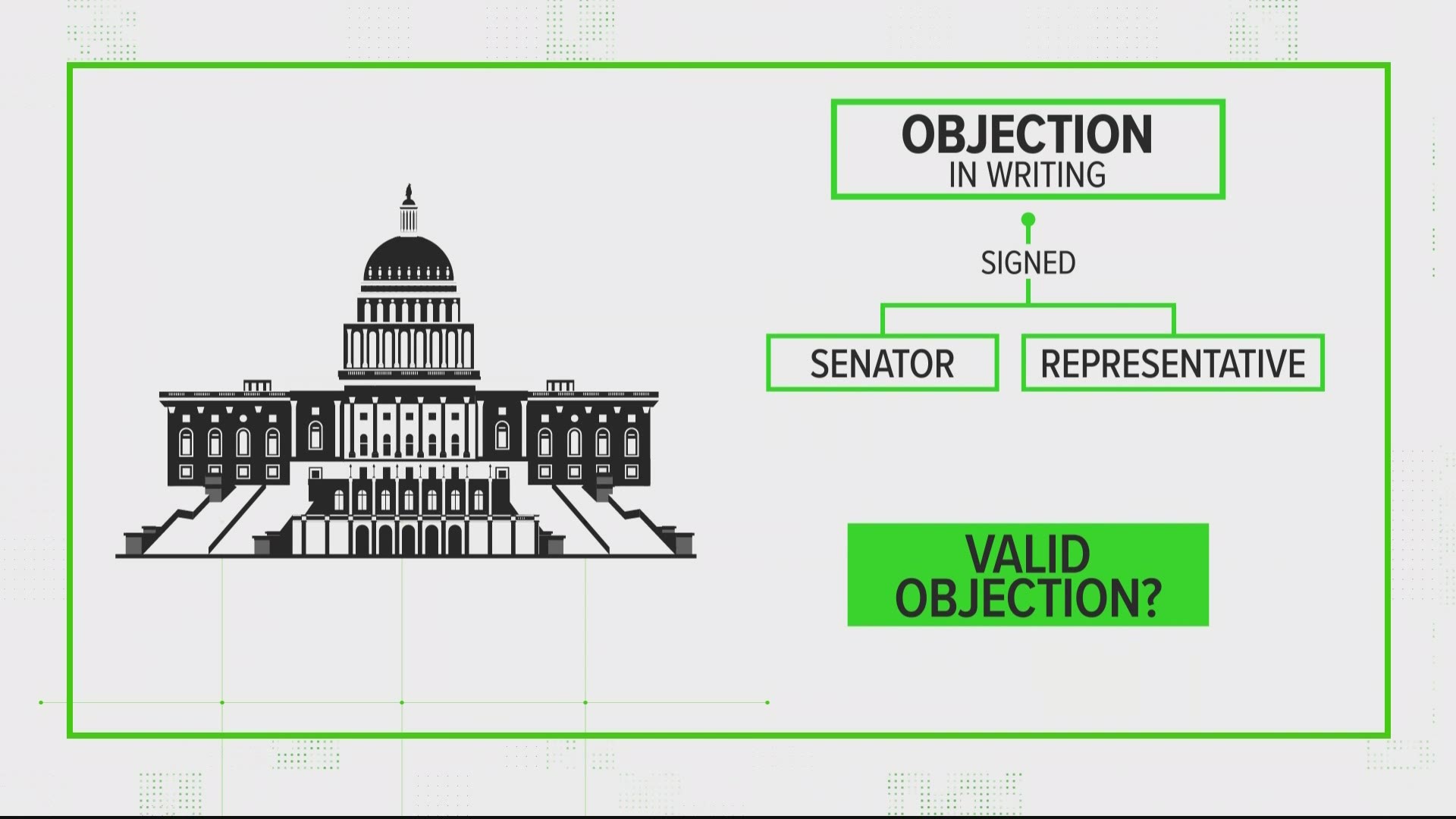WASHINGTON — As the Electoral College meets to certify election results on January 6, many people have been wondering how the process works, and if those in power have any say in changing results.
Specifically, some claim Vice President Mike Pence has the power to 'decertify' election results that the Electoral College brings forward. So let's look at the VP's official role in this process.
SOURCES:
- The United States Constitution, 12th Amendment
- Aseem Muliji, legal counsel for the Campaign Legal Center
PROCESS:
On Tuesday, just one day before the Electoral College votes go before Congress to be certified, President Donald Trump tweeted that “The Vice President has the power to reject fraudulently chosen electors."
But that's not exactly how the process works.
What exactly is Pence's role on January 6?
The Constitution doesn't grant the vice president any such power that Trump labeled. Instead, it's up to the House and Senate to voice any objections, which will take place on January 6 around 1 p.m. And each of those state electors was chosen in accordance with state law, not fraudulently.
Instead, the Constitution shows Pence's role is more formal, monitoring the session that will take place.
“The president of the Senate shall, in the presence of the Senate and House of Representatives, open all the certificates, and the votes shall then be counted,” it reads.
So Pence will oversee the joint session of Congress, opening each of the certificates of each state's electoral votes and then presenting those to already appointed House and Senate "tellers" in alphabetical order.
"The person having the greatest number of votes shall be president," the amendment continues.
After presenting them to all of the tellers, who count the votes, Pence then will announce who officially won. But our experts say he doesn't have any official say in changing the votes, as some social media posts say.
What would it take to overturn election results? What if there is no majority?
For those election results to actually be overturned, both the House and the Senate would have to agree on the need to do so.
If no one candidate secured a majority, or in the odd event there is a tie, then the House would decide.
What would happen if Pence didn't show up to the vote at all? Would there be a delay?
Aseem Muliji from the Campaign Legal Center explained that while anything seems like it could happen, the process would be filled in by another member.
"I don't know what Vice President Pence will do, but nothing in the law or in the procedure of Congress permits actions that would change the results at this point," he explained. "So even if VP Pence decided not to show up, the president pro tempore of the Senate could step into the role."
That position is currently held by Republican Chuck Grassley.
So hypothetically, if an objection passes both chambers, where do the votes go?
"Rejection means that that state just won't be counted and every single person in that state will basically be disenfranchised by both houses, deciding not to count their electoral votes," Mulji said.
Our Verify researchers also read through the federal statute about counting electoral votes, and nowhere does it say that if an objection succeeds, the opponent would get the votes.
So we can Verify, no, if objections pass, President Trump wouldn’t get those votes.


